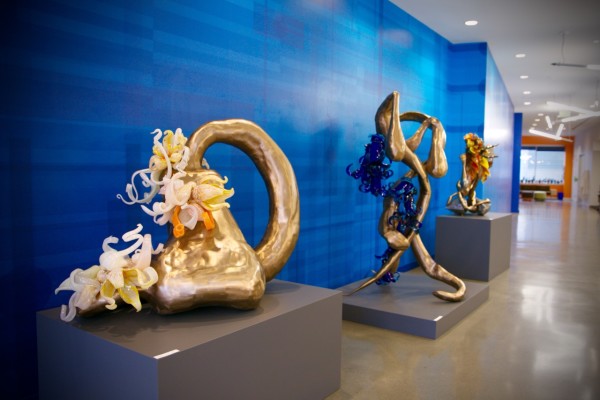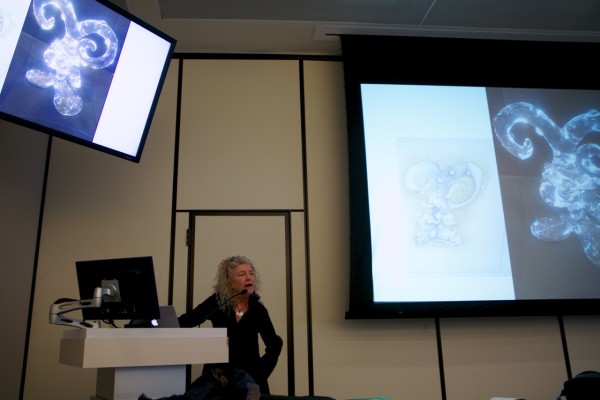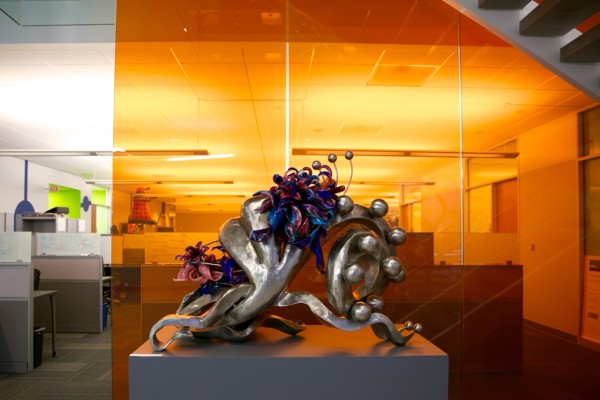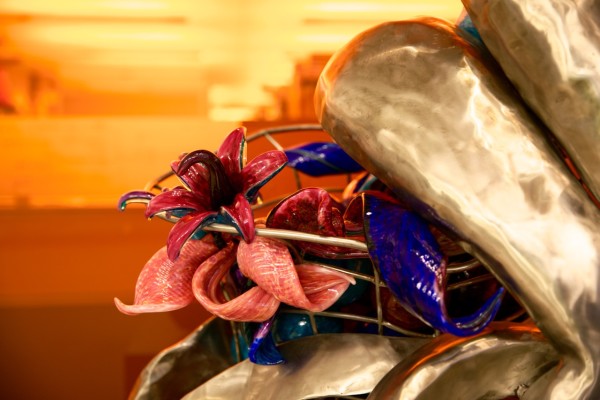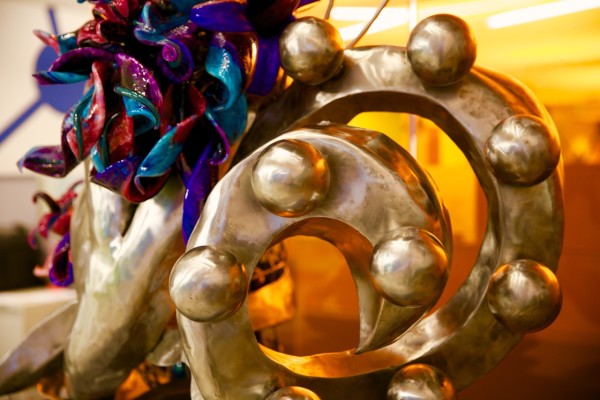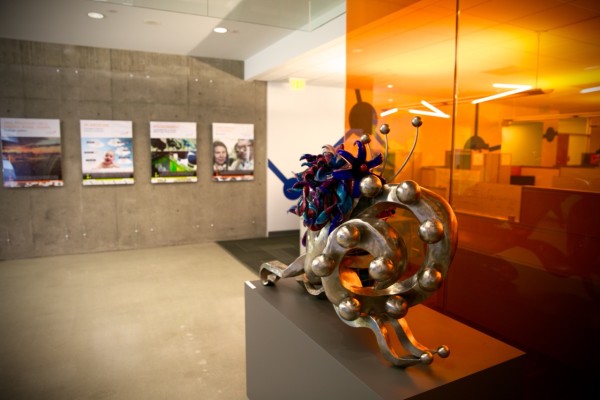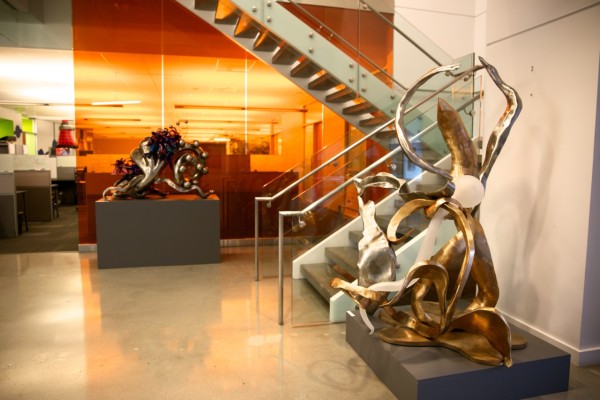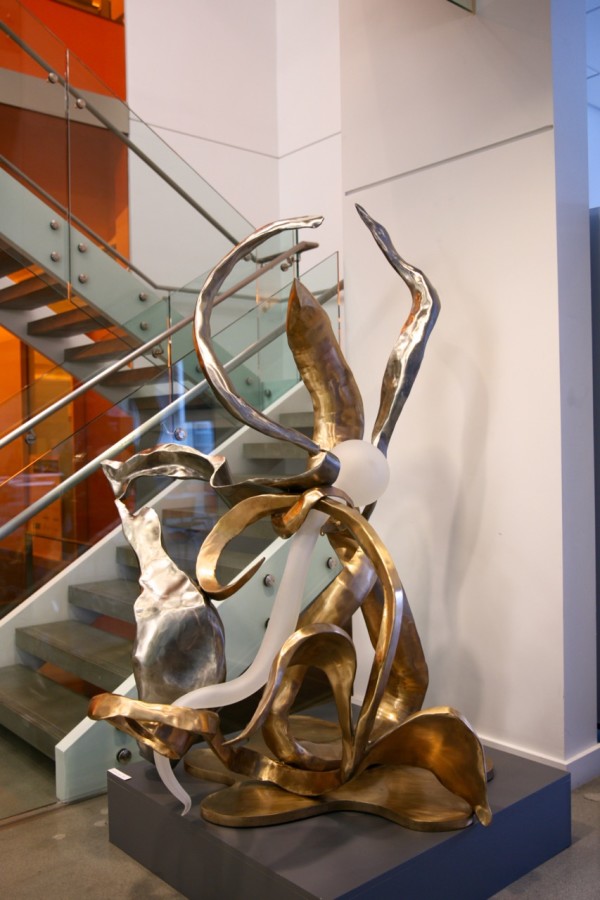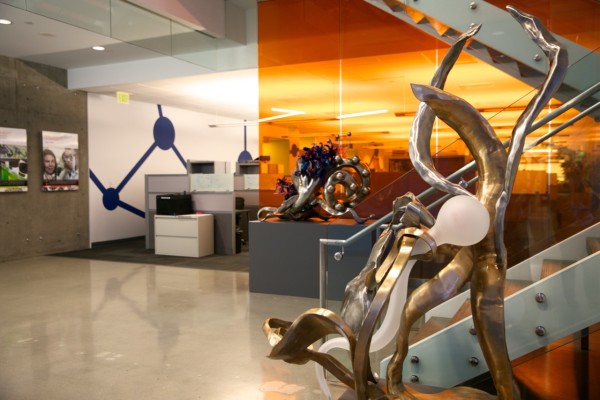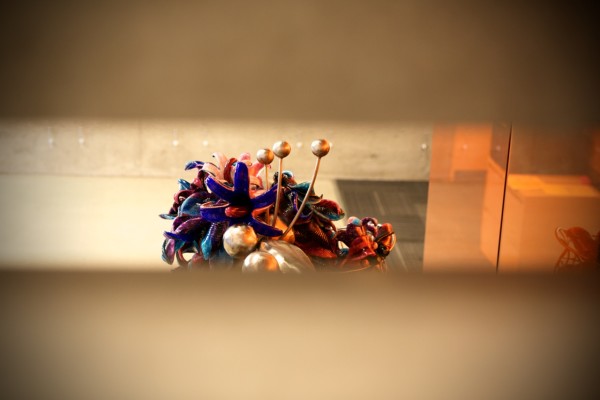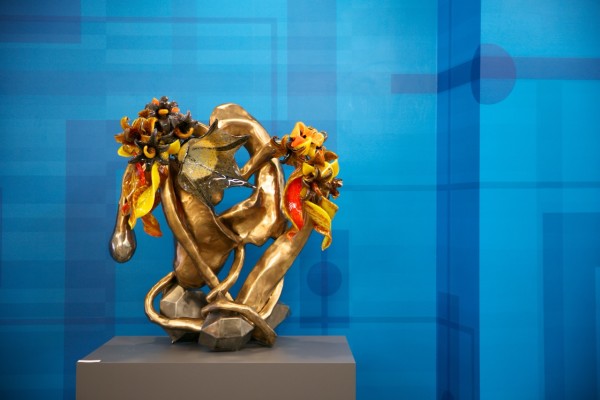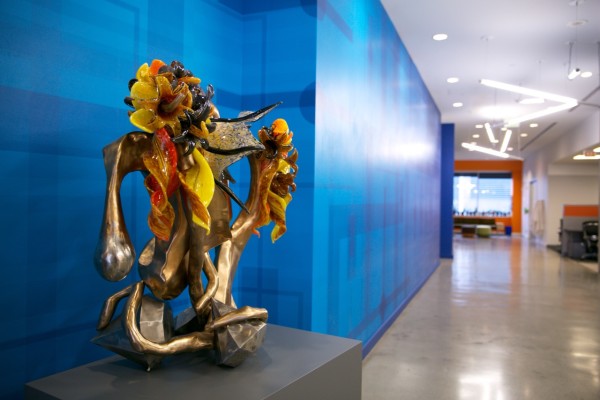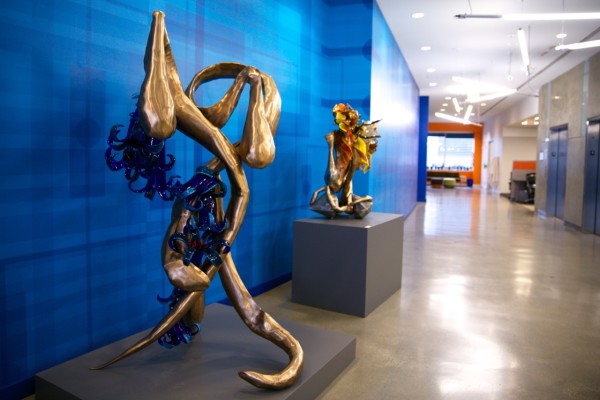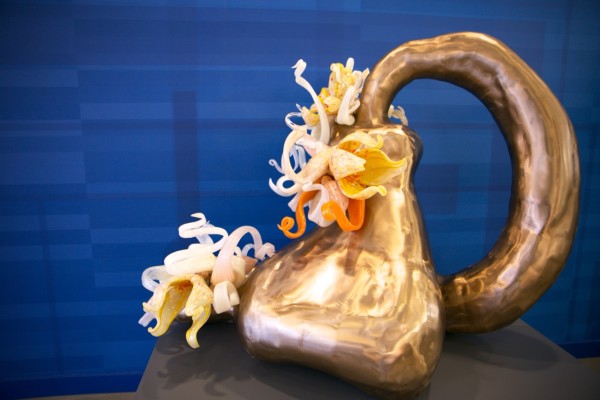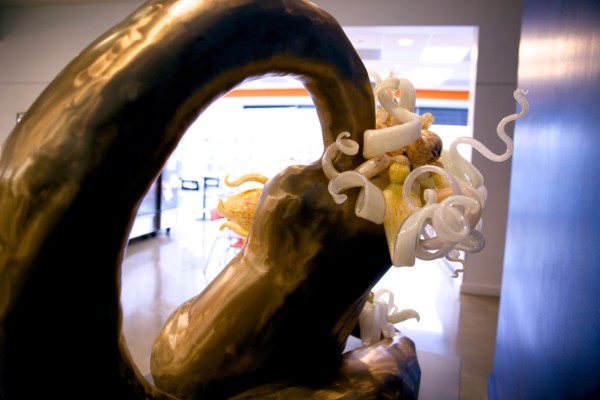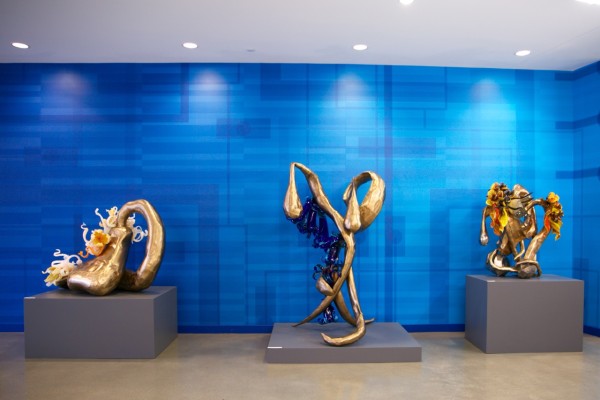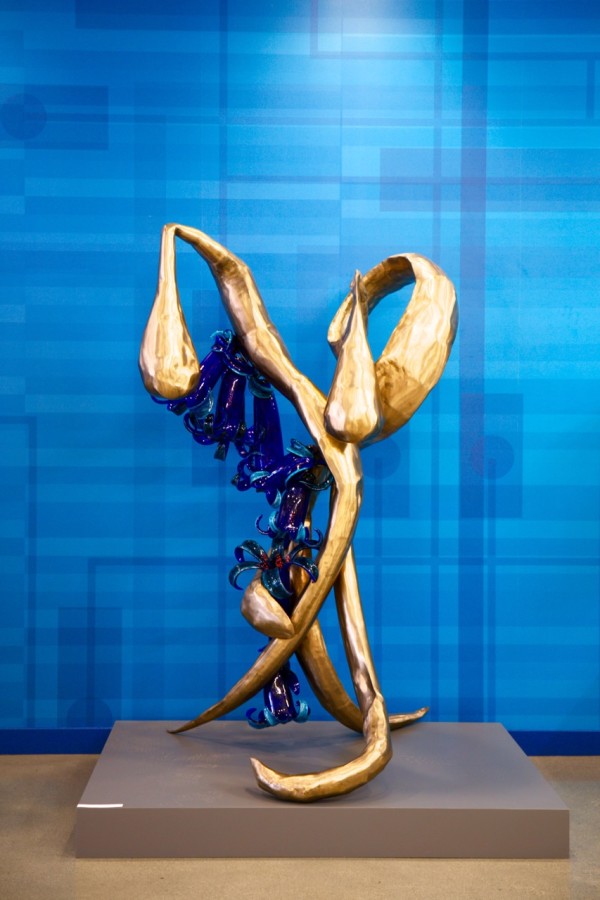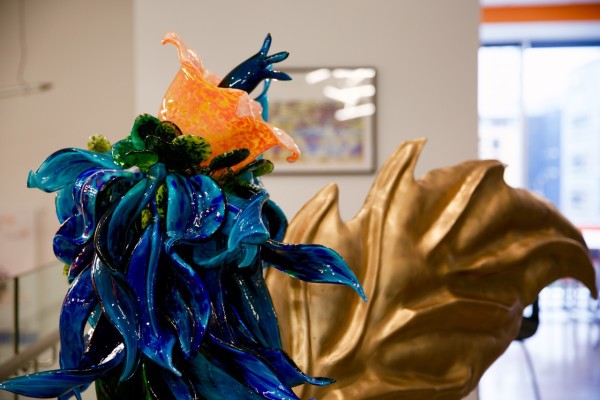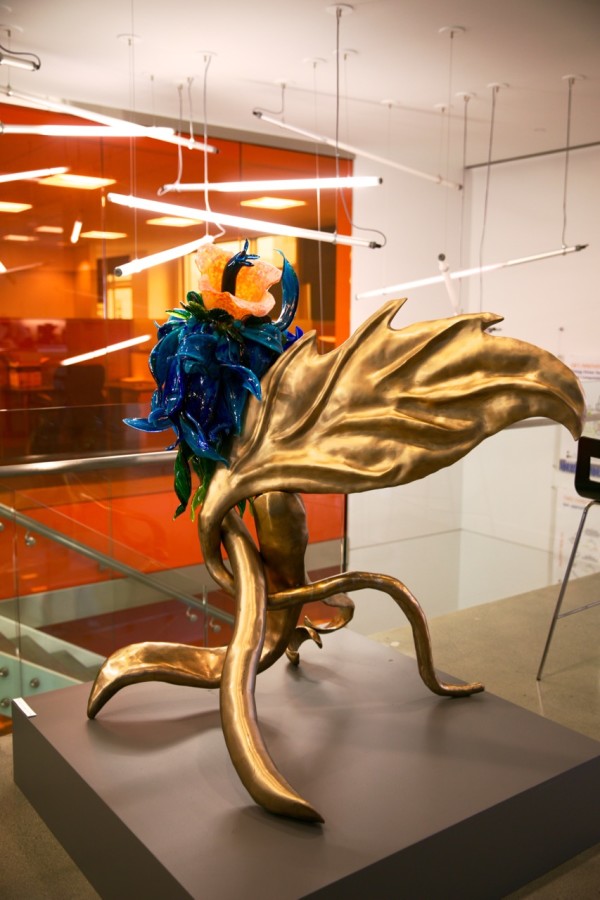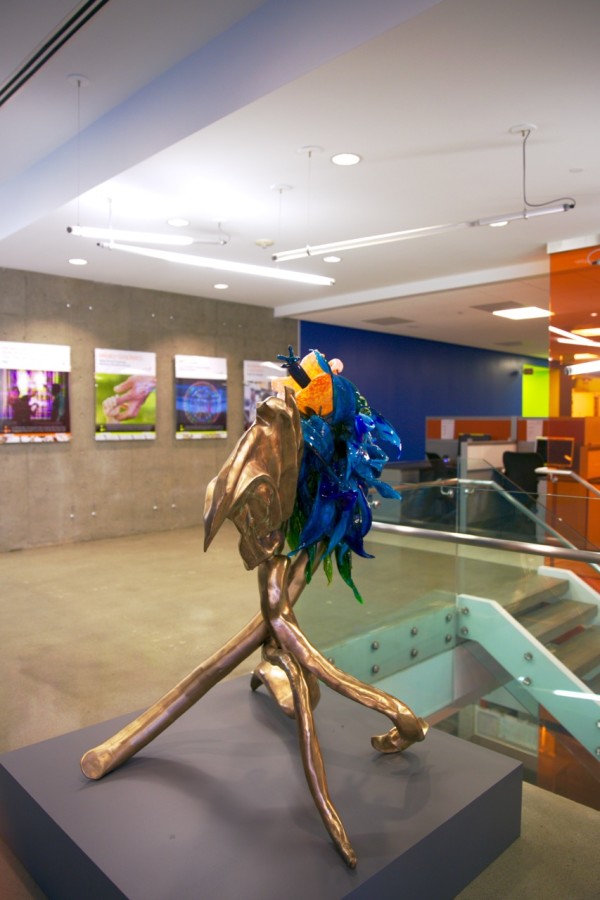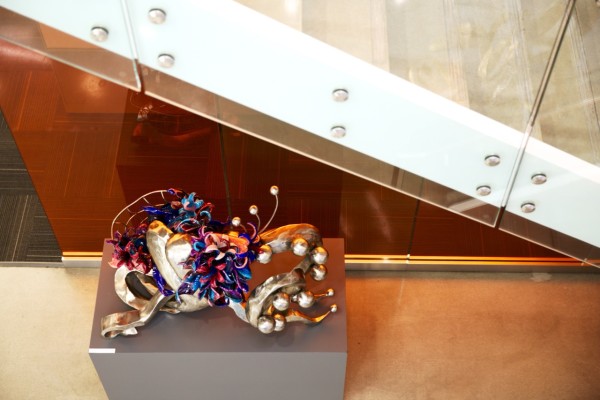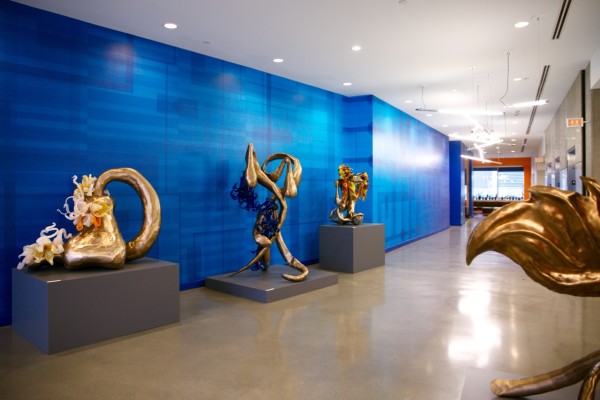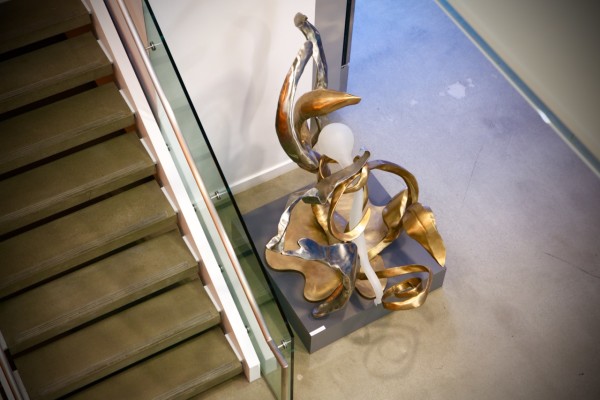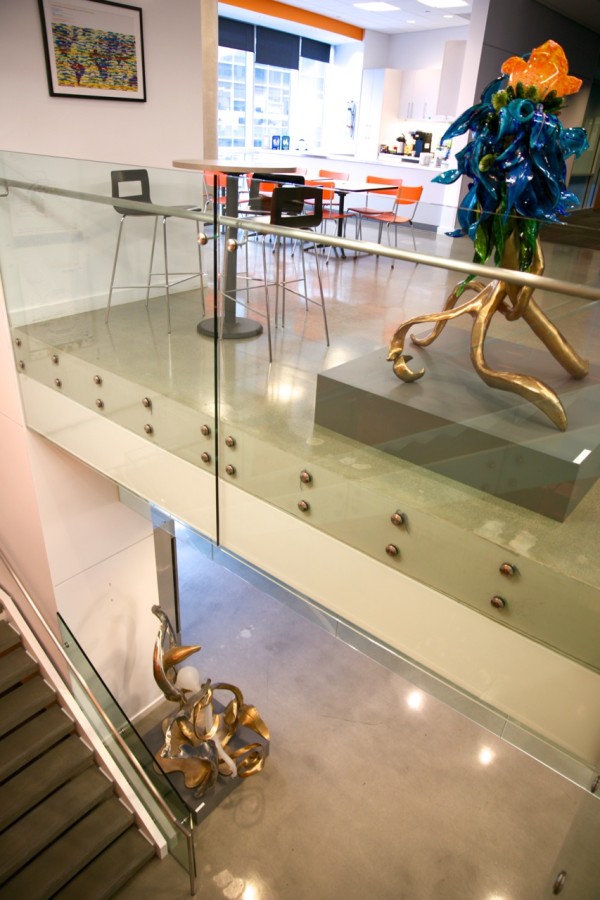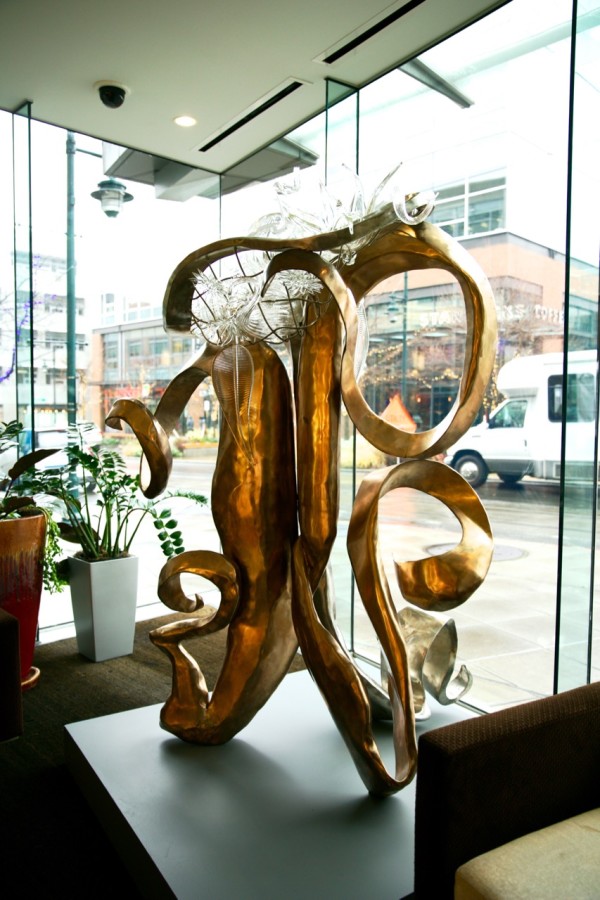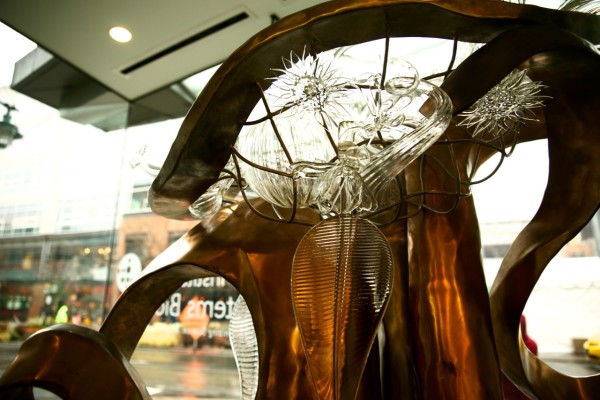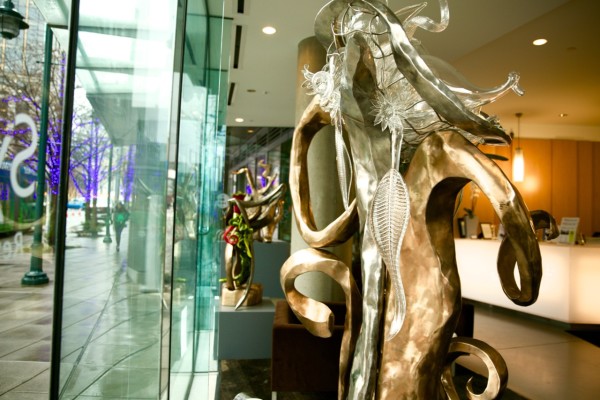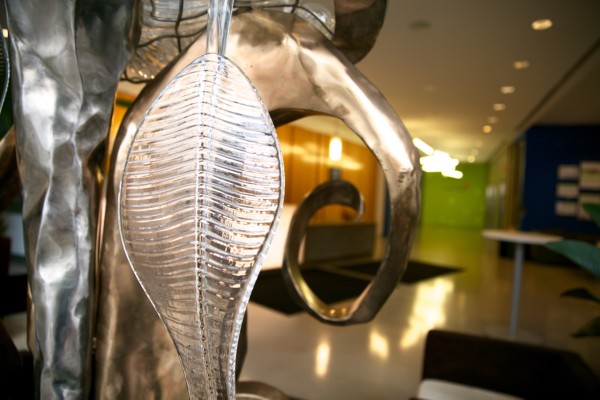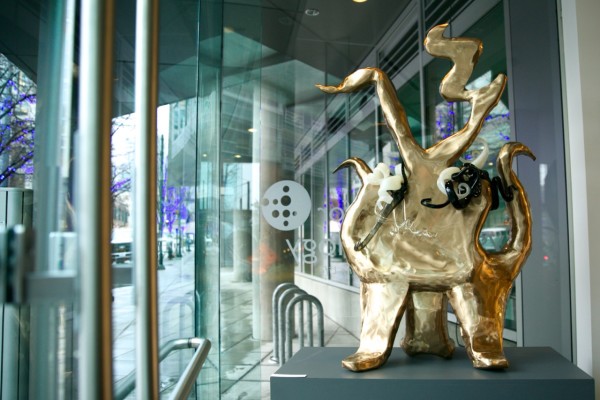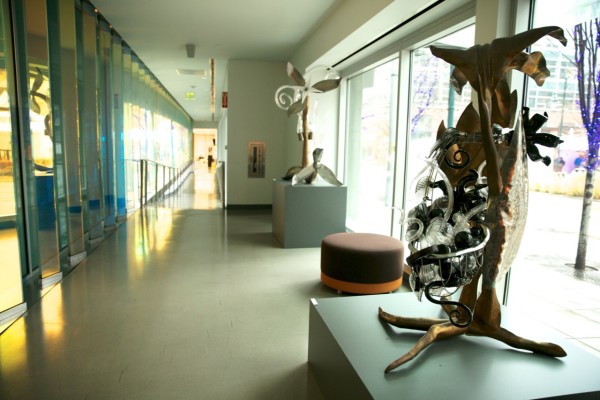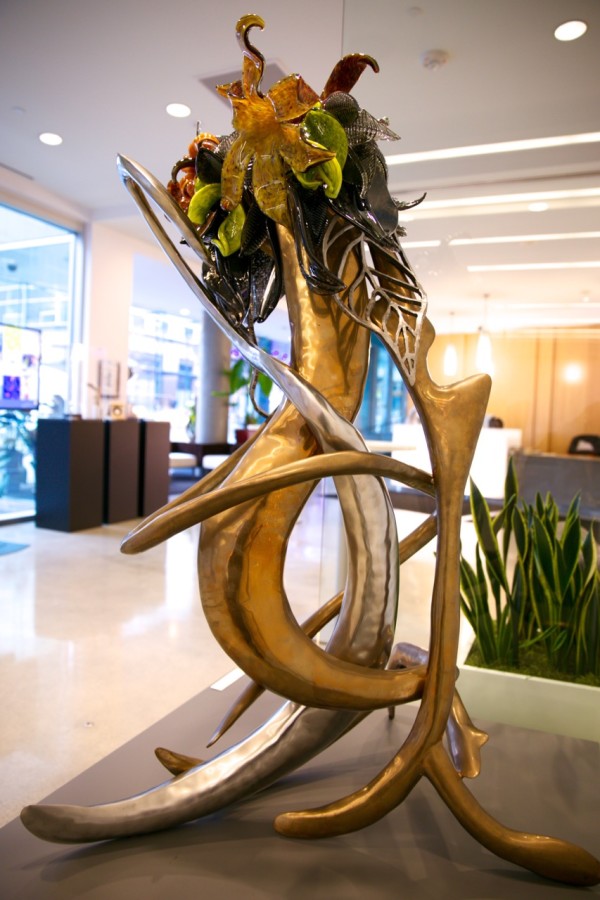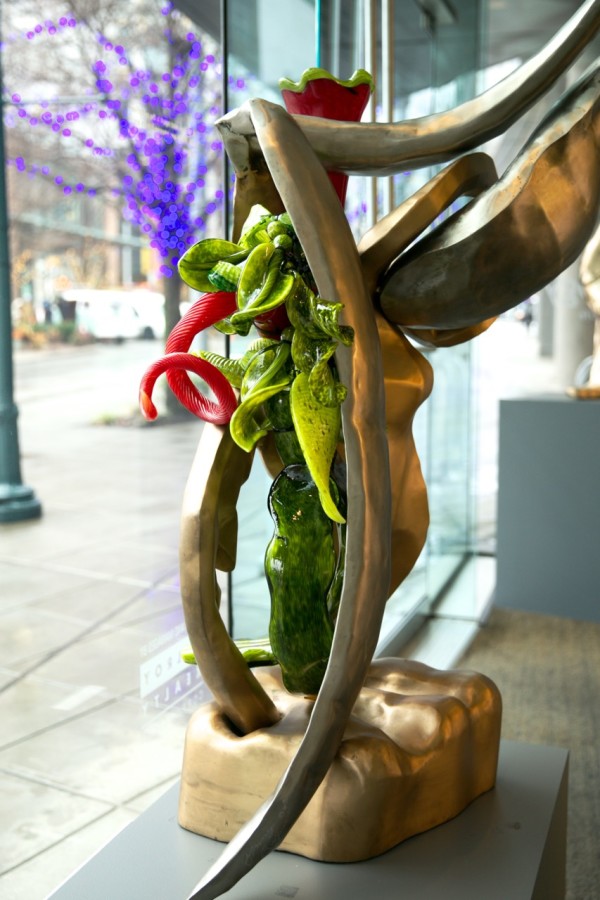Ginny Ruffner Presents “Aesthetic Engineering” at Institute for Systems Biology
 isbscience.org/news/2015/12/18/ginny-ruffner-presents-aesthetic-engineering-at-institute-for-systems-biology/
isbscience.org/news/2015/12/18/ginny-ruffner-presents-aesthetic-engineering-at-institute-for-systems-biology/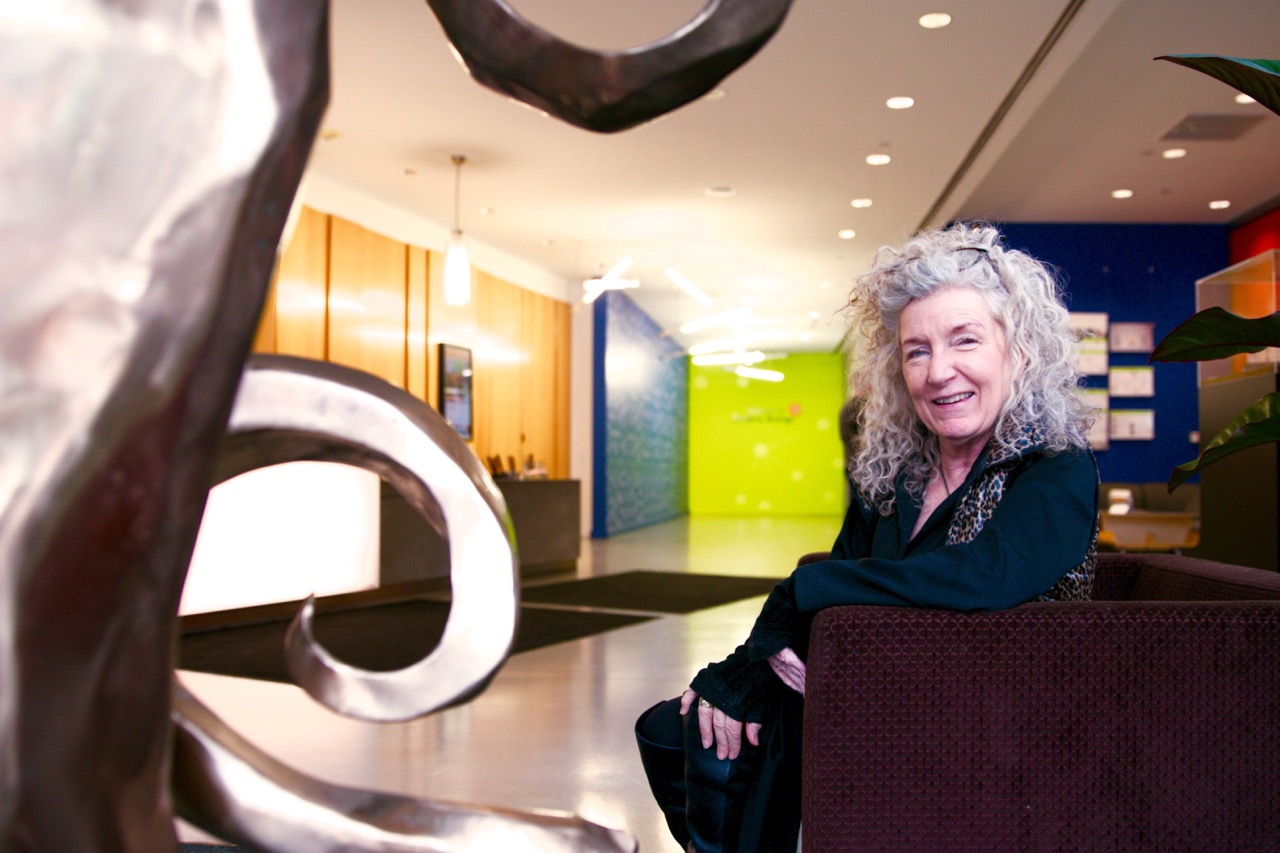
World-renowned artist Ginny Ruffner presents twelve pieces from her “Aesthetic Engineering” series at Institute for Systems Biology. On view from December 2015 to December 2017, the works are throughout the lobby, third and fourth floors. For a tour of the works, contact: communications@isbscience.org
“Aesthetic Engineering” presents a dramatic series of large-scale mixed media works by internationally acclaimed glass artist Ginny Ruffner. The series was inspired by recent breakthroughs in genetics and bio engineering, and the possibilities of future gene sharing between animal and plant kingdoms. Exuberant and wildly imaginative, the works combine bronze, stainless steel and blown glass into fantastic futuristic forms.
Aesthetic Engineering has been presented at:
- Kimball Art Center, Park City Utah
- Museum of NW Art, LaConner WA
- Bellevue Arts Museum, Bellevue WA
- Huntsville Museum of Art, Huntsville, AL
About Ginny Ruffner
Ginny Ruffner is a Seattle artist, trained at the University of Georgia as a painter, graduating with honors and an M.F.A. in 1975.
Ruffner has had 74 solo shows, several hundred group shows, and her work is in 53 permanent museum and public collections around the world.
Seattle public art installations include a 30-foot tall kinetic water feature downtown and a permanent installation in the Seattle Art Museum’s Olympic Sculpture Park.
She has written two books and been the subject of an award winning, full-length documentary titled “A Not So Still Life, the Ginny Ruffner Story”.
Ruffner has lectured and taught extensively and has served as an artist in residence numerous times at schools and universities around the world.



